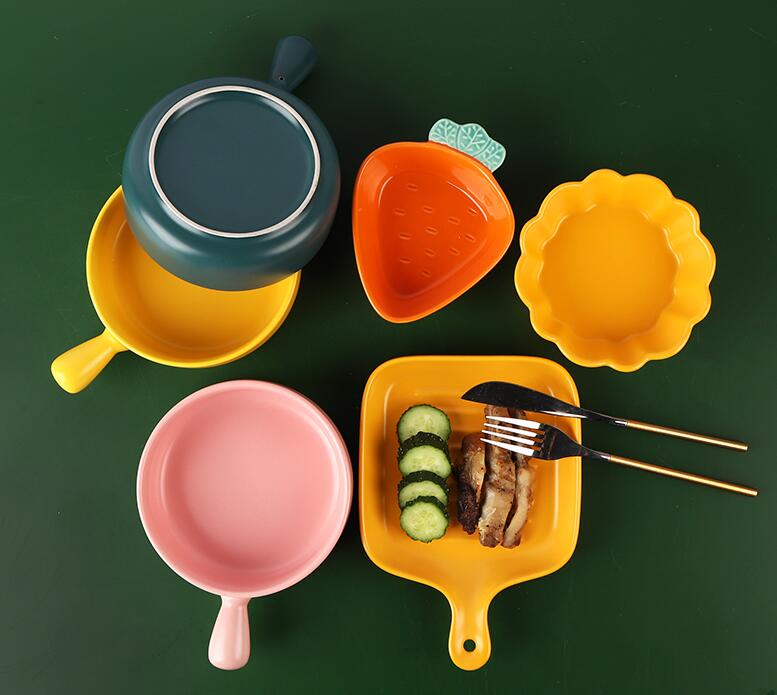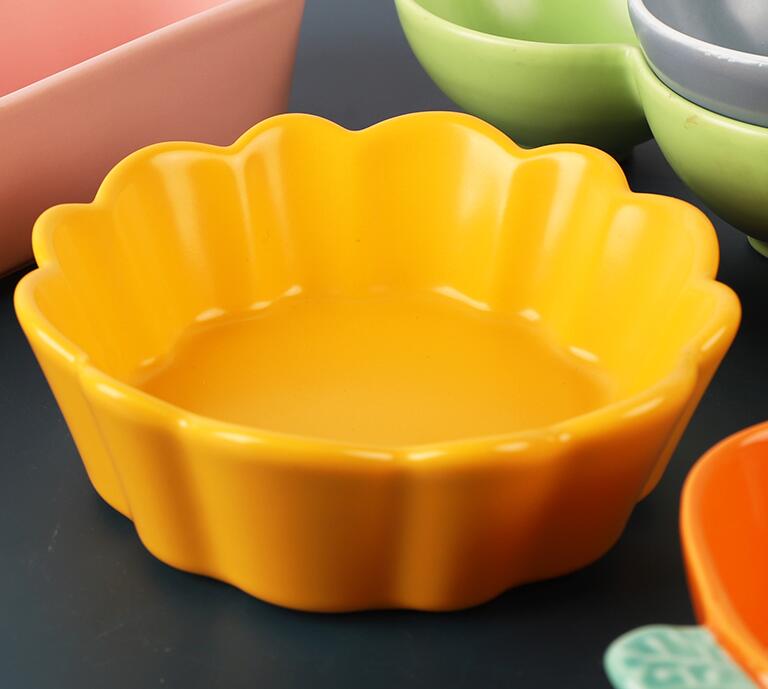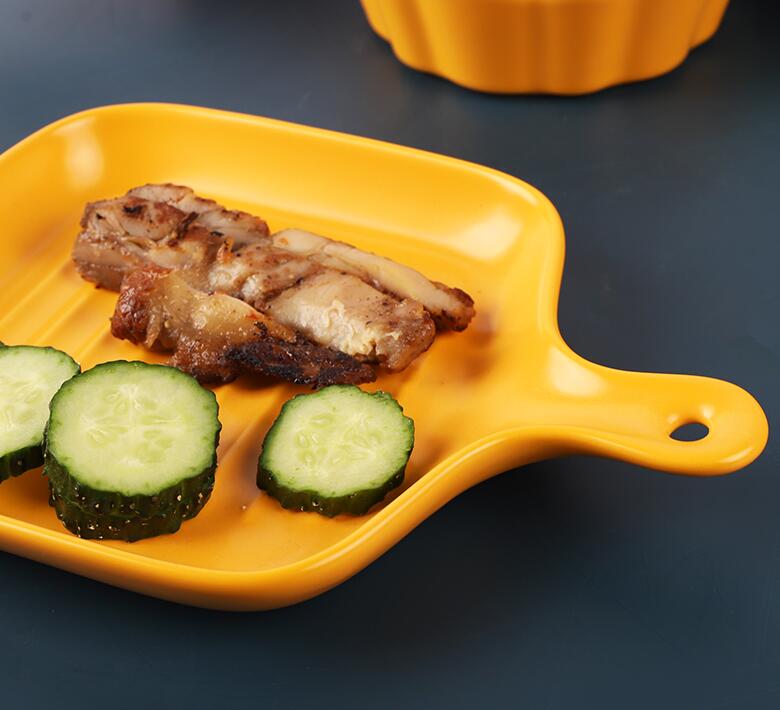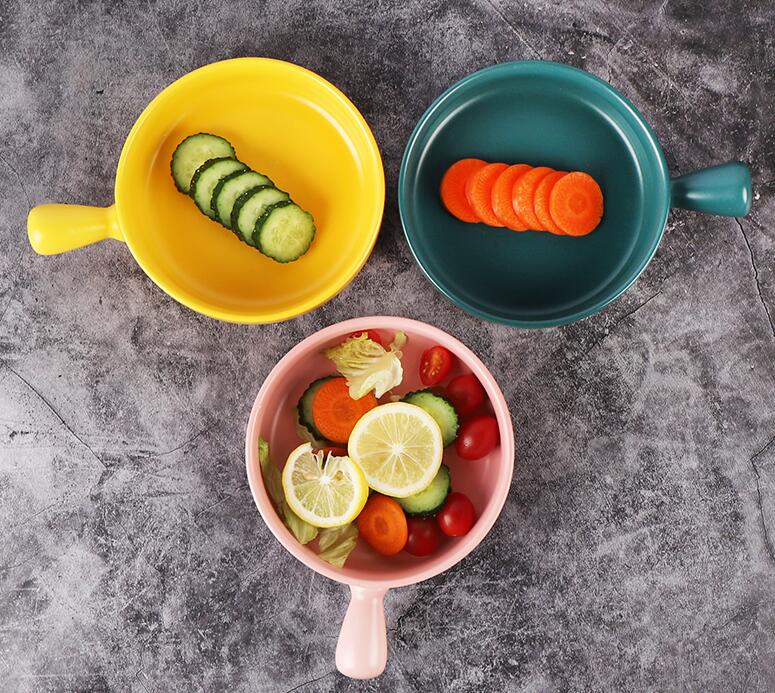Pulished on May. 27, 2025
1.Microwave oven operating temperature range
Temperature tolerance basis
Ceramic materials are usually fired at temperatures above 1000°C, while the temperature of a microwave oven is generally no more than 250°C. Therefore, a ceramic bakeware
manufactured in Chinese factory can be used in a microwave oven without any temperature limitation risks.

Restrictions/Constraints
Ceramic baking trays with metal decorations (such as gold or silver borders) must not be placed in the microwave oven. Metal may cause sparks or damage the equipment
when exposed to an electromagnetic field.
The heat resistance of the glaze or decorations must comply with the safety standards for microwave ovens. It is recommended to choose products that clearly indicate
"suitable for microwave oven use".
2.Oven Operating Temperature Range
High-temperature ceramic material

The ceramic baking trays used in professional ovens are mostly fired at temperatures above 1200°C and are reinforced with heat-resistant materials. Theoretically, they
can withstand the normal operating temperatures of household ovens (200-260°C). However, please note the following details:
- Heat Resistance Limit: The maximum temperature limit for ordinary bone china or hard porcelain baking trays is approximately 260°C. Exceeding this limit may cause cracking.
- Temperature Gradient: Avoid directly placing chilled ceramic baking trays into high-temperature ovens. Large temperature differences can easily cause thermal expansion and
contraction, leading to cracking.
Impact of Decoration and Craftsmanship
Ceramic baking trays with metal decorations are not suitable for ovens. High temperatures may cause the metal parts to melt or release harmful substances 25. The integrity
of the glaze must also be ensured without cracks, otherwise, damage may be exacerbated at high temperatures.
3.Microwave Suitability Assessment
Check Labels and Materials
Verify if the bottom of the ceramic bakeware wholesale from China has a "Microwave Safe" or "Microwave Applicable" label. Pure ceramic materials (without metal decorations or painted designs) are
generally safe for use, but avoid products with metal gold or silver edges.
- If the label is missing, you can perform a water test: microwave a ceramic baking dish along with a cup of water for 1 minute. If the temperature of the dish rises significantly
(too hot to touch), it may not be suitable for microwave use.
Examine the decoration and glaze
- Metal decorations (such as gold foil or silver thread) can cause sparks. Their use is prohibited.
Ceramic baking trays with overly bright glaze colors may contain heavy metals.

- Harmful substances may be released at high temperatures. Choose them with caution.
Check for integrity
Baking trays with cracks, chips or wear are not recommended for microwave use. They may break when heated.
4.Oven Suitability Judgment
Marking and Heat Resistance Verification
Give priority to products marked as "oven-safe" and indicating the heat resistance temperature range (such as above 260°C). For baking trays without such markings, the
following methods should be used to determine their suitability:
- Material type: High-temperature ceramics (such as white porcelain) have better thermal shock resistance than bone china.
- Firing process: Ceramics fired at high temperatures (above 1200°C) are more resistant to oven environments.
Inspection of decoration and structure
- Griddles with metal parts or painted decorations are prohibited from use.
- The glaze surface must be intact and free of cracks to prevent accelerated damage at high temperatures .
- Thicker baking trays heat more evenly, reducing the risk of local overheating.

Operational adaptability test
When using for the first time, place an empty baking tray in a preheated oven at 150℃ for 10 minutes. If there is no cracking or abnormal noise, gradually increase the
temperature to test the upper limit.